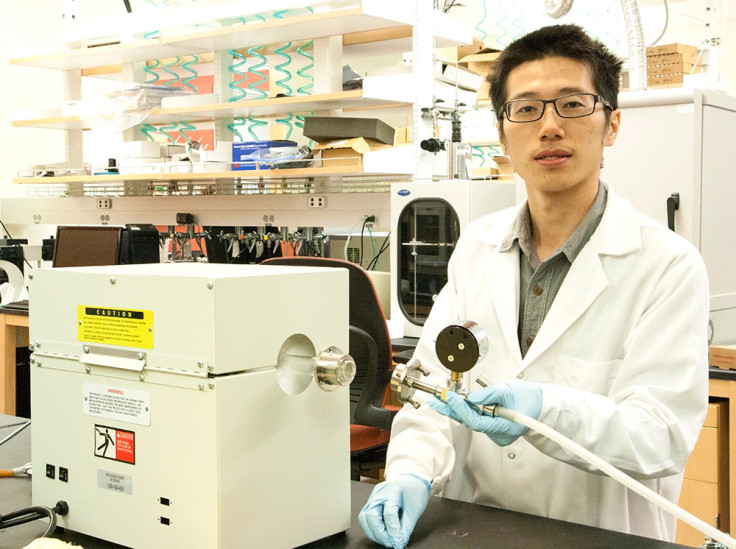Lithium-air catalyst breakthrough could make car and phone batteries last five times longer

US and South Korean scientists have discovered new catalyst materials that could make it possible to create lithium-air (Li-Air) batteries that can store five times more power than lithium-ion (Li-On) batteries do today.
Lithium-air batteries work by taking oxygen from the air and using it in chemical reactions that produce electricity, rather than storing an oxidiser internally like lithium-ion batteries.
This enables Li-Air batteries to have energy densities that can be as much as 10 times greater than lithium-ion batteries, and a single Li-Air battery would enable an electric car to drive 400 miles on a single charge but cost and weigh a fifth of a Li-On battery.
This is very exciting, but the potential abilities of lithium-air batteries are just theory at the moment, and numerous scientists around the world are racing to discover how to make the technology possible.
Scientists at University of Texas at Dallas (UT Dallas) have discovered new soluble electrolyte catalyst materials that, when combined with oxygen, produce chemical reactions to create the power in a battery and have many advantages over conventional solid catalysts used today, and they are much more efficient.
Making better batteries possible
However, only certain organic materials can be used to make such a catalyst, so they have teamed up with researchers from Seoul National University to develop a new catalyst is called "dimethylphenazine" that has an increased voltage efficiency and much higher stability.
"There's huge promise in lithium-air batteries. However, despite the aggressive research being done by groups all over the world, those promises are not being delivered in real life," said Dr Kyeongjae Cho, professor of materials science and engineering in the Erik Jonsson School of Engineering and Computer Science at UT Dallas.
"So this is very exciting progress. [We] have demonstrated that this problem can be solved. Hopefully, this discovery will revitalise research in this area and create momentum for further development."
Several car manufacturers and telecommunications companies are interested in this research and Cho is providing them with updates, but it will still take between five to 10 years before lithium-air batteries can be commercialised and actually used in consumer mobile devices and electric vehicles.
"Automobile and mobile device batteries are facing serious challenges because they need higher capacity," said Cho. "This is a major step. Hopefully it will revitalize the interest in lithium-air battery research, creating momentum that can make this practical, rather than just an academic research study."
The research, entitled "Rational design of redox mediators for advanced Li-O2 batteries" is published in the journal Nature Energy.
© Copyright IBTimes 2025. All rights reserved.






















